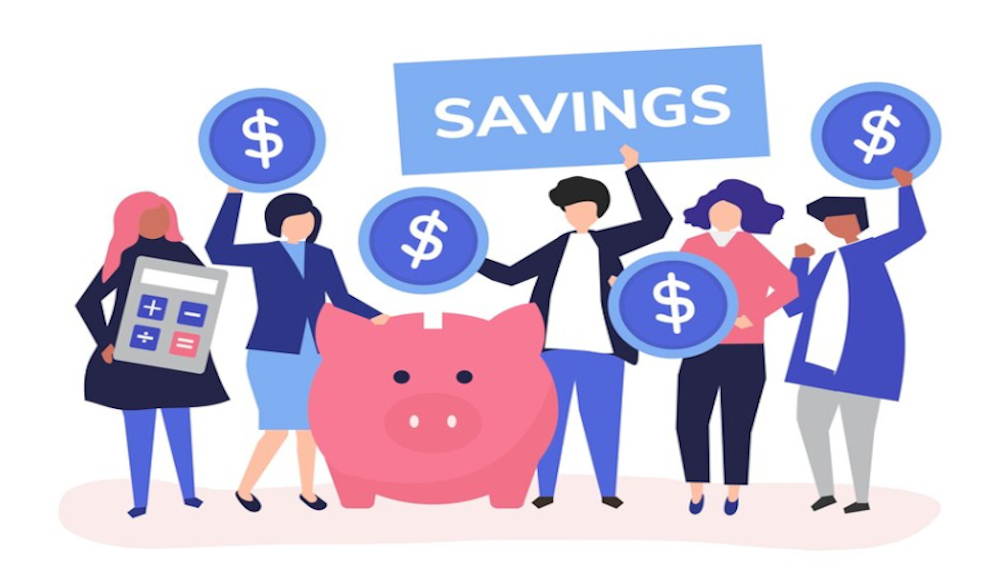Maximizing Your Savings: Choosing the Right Savings Account for Everyday Needs

Choosing the appropriate savings account is a crucial first step in a financial organization. Even if there are numerous possibilities, the easiest method to save money is to select an account that meets your daily demands. This article will help you choose the best savings accounts and explain how they can save money.
Understanding Savings Accounts
A savings account is a bank or credit union cash account. A savings account is a secure, compounding investment vehicle. Planning for unforeseen future expenses may also benefit from it. Each savings account a bank offers is designed to fulfill a specific function. Knowing what each sort of account can accomplish for you, how it fits into your daily routine, and whether there are any fees can help you save the most money.
Types of Savings Accounts
Here are the different types of savings accounts -
1. Traditional Savings Accounts
Almost all banks and credit unions provide these alternatives for savings accounts. They often don't have large minimum quantities and are simple to get. There is a low interest rate. Putting money into a traditional savings account is a low-effort, low-risk approach to earn income and expand your funds.
Pros
- Easy to access funds.
- Low to no minimum balance.
- Available at every institution.
Cons
- Lower interest rates.
- Fees for withdrawal beyond the limit.
2. High-Yield Savings Accounts
High-yield savings accounts offer a substantially larger interest yield than low-yield savings accounts. Online banks and other financial organizations without physical websites usually provide these accounts. They may increase interest rates to offer their consumers more money.
Pros
- Higher interest rates compared to traditional savings accounts.
- No lock-in period.
Cons
- Higher minimum deposit.
- Online banks usually provide it.
3. Money Market Accounts (MMAs)
A money market account functions similarly to a savings and a checking account combined. They are ideal for regular shoppers since they provide greater interest rates and allow you to write checks or use debit cards.
Pros
- Interest rates are higher than in regular savings accounts.
- Use a debit card or write checks
Cons
- Higher minimum balance requirements.
- Limited monthly purchases.
4. Certificates of Deposit (CDs)
Although CDs aren't savings accounts, many people use them to grow their monthly payments gradually. Compared to savings or money market accounts, certificate of deposit interest rates are generally higher. However, the funds must remain in the account for a specific period. It can range from a few months to several years.
Pros
- Fixed interest rates throughout the CD's term.
- Higher returns than traditional savings accounts.
Cons
- Money is locked in for a specific period.
- Early withdrawal penalties.
Key Features to Consider When Choosing a Savings Account
Consider the following while making your decision -
1. Interest Rates
The interest rate is among the most crucial factors to consider. The purpose of savings accounts is to increase your cash. The best options are accounts with competitive prices, such as high-yield savings accounts. Even little adjustments over time might have a big impact on how much money you save.
2. Fees and Minimum Balances
Many savings accounts come with maintenance fees and withdrawal fees. These might be one-time costs, withdrawal fees, or fees for dropping below a minimum balance. These fees can erode any interest you earn. Be sure to choose an account with low or no fees, especially if you don’t plan to maintain a high balance.
3. Accessibility
Consider how frequently you will need to use your money. Choose an account that offers easy access to your funds and minimal transaction limits if you have to withdraw frequently. High-yield accounts may provide excellent rates but may be less flexible regarding accessibility.
4. Account Security
Safety should be the top priority when picking a savings account as more individuals bank online. FDIC or NCUA-insured banks and credit unions cover $250,000. Look for accounts with encryption and two-factor authentication.
5. Customer Service
Providing excellent customer service is something you should consider even if it's unclear how it could lead to financial savings. It's convenient to know that contacting the friendly customer support agents at your bank is simple in case of a problem. Choose between an online-only bank that may be accessible twenty-four hours a day, seven days a week, and a local bank that you may visit in person.
Conclusion
If you want to save a lot, choose the right savings account. Everyone has easy access to cash, low fees, or high interest rates for daily financial needs. Your money will work harder for you while being secure and easily accessible if you select the appropriate account type and features. Consider first what you need and desire from money. After that, thoroughly weigh your alternatives and decide on a course of action that will help your financial situation.







